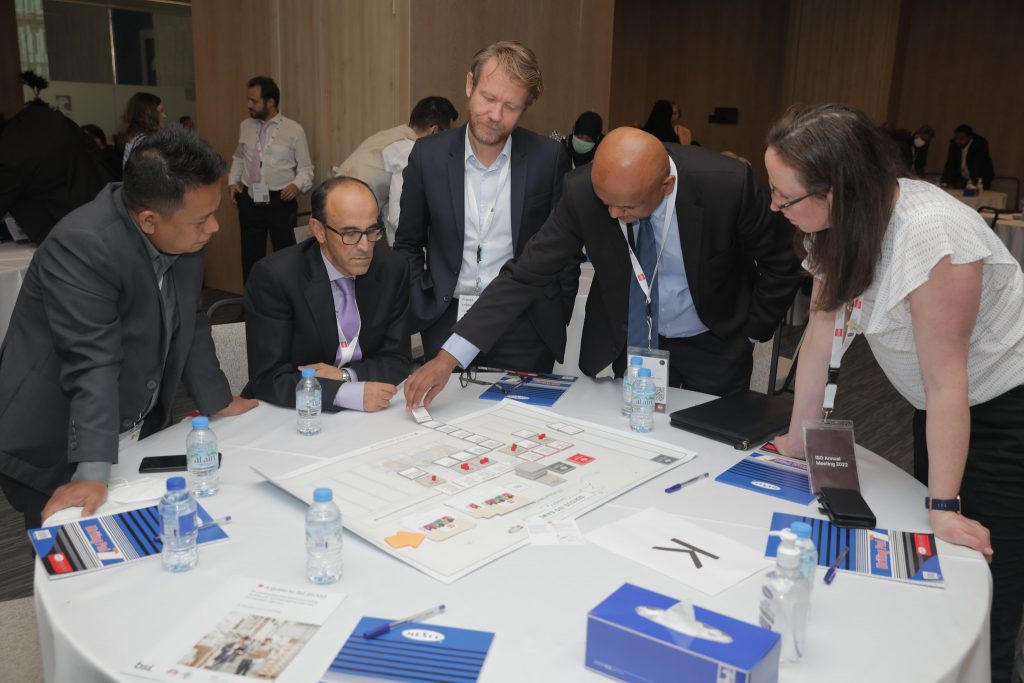
SERIOUS GAMES FOR TECHNOLOGY TRANSFER
Therefore, serious games can be a great supplement both to traditional instructional techniques and to collaborative tools, as they may offer a facilitated exchange of experience with a clear and practical application.
Tech transfer games
House of Knowledge, a Norway-based serious games design company, has substantial experience in creating serious games within a vast range of disciplines. More specifically, House of Knowledge are subject matter experts in intellectual property and technology transfer and have developed several serious games within the IP domain – including developing games with and for WIPO. The company collaborates with universities, NGOs, and industry partners across the globe to create serious games revolving around interaction and the exchange of experience and knowledge to achieve collaborative learning, novel insights, and improved capacity. House of Knowledge has also been a partner in several EU funded projects, contributing serious games created for varied objectives, including data extraction, governance, and cross-cultural perspective exchange. For House of Knowledge, the unifying element across these diverging objectives is capability building. Capability building refers to the process of developing and strengthening the skills, knowledge, resources, and infrastructure of individuals and organizations to enhance their capacity to achieve their goals and objectives. Regardless of objective, discipline, and sector, serious games can be understood as a tool for capability building.
Important cooperation with LES France
In collaboration with LES France, House of Knowledge has created a serious game for technology transfer, called the Serious Tech Transfer Game. This game pits participants working with technology transfer together physically, in groups of three to five. In the game, players will discuss risks related to agreements, map a timeline, and clarify a best practice technology transfer process related to the game case. The main objective of the game is for players to engage in an exchange of experience, wherein they can learn practically applicable skills and knowledge from each other. In the game, players are tasked with carrying out a simulated technology transfer endeavor. To progress through the game the players have to grapple with how to plan for technology transfer, dealing with common challenges that may occur during and after transfer, as well as tackling common hurdles such as reaching and formalizing an agreement. The game uses realistic scenarios that players can relate to, facilitating the exchange of experiences. To complete the game, player groups will have to discuss, use and share their prior knowledge and experience, and work together as a team to be able to solve complex problems with no obvious answer. The game is played using a technology transfer canvas, used to structure and evaluate relevant information, reveal interrelations, and support discussions. Magnus Hakvåg (CEO of House of Knowledge) and Dr Sophie Pasquier (Principal Licensing Counsel at Philips Intellectual Property & Standards & President of LES France) facilitates the game to ensure a smooth player experience throughout.
Useful contacts and knowledge
By playing the Serious Tech Transfer Game, participants within technology transfer will be able to share their own experience and learn from the perspectives of others. The game is intended to support the exchange of contextually sensitive tacit knowledge and experiences regarding best practices among French technology transfer experts. This should strengthen collective insight and capability – and hopefully create an enjoyable event for the experts. This opens the door for interorganizational learning, giving players a better grasp of how technology transfer is experienced and carried out outside of their own organization. By broadening the scope of understanding with diverging perspectives, players can gain greater appreciation for how others engage in technology transfer practically. The new practices that may result from such an exchange should act to strengthen individuals’ and individual organizations’ technology transfer efforts. As such, one expected outcome of the game play is a strengthened community of practice and collective understanding of best practices within technology transfer. Furthermore, the collaborative problem-solving processes around which the game is designed, may facilitate the acquisition of novel skills and the emergence of tacit knowledge.
Title foto: ISO
Håvard Almås

Håvard Almås is a researcher at House of Knowledge and an industrial Ph.D. candidate of organizational psychology jointly at the Norwegian University of Science and Technology (NTNU) and House of Knowledge. His research interests include collaborative learning, teamwork, engagement in play, serious games, and organizational development more broadly. Previously he has been engaged in research on the digital transformation of non-digital board games, the formation of learning experiences in serious games, and the emergence of collaboration in small player groups.
ORCID: https://orcid.org/0000-0003-0004-3679
 EN
EN